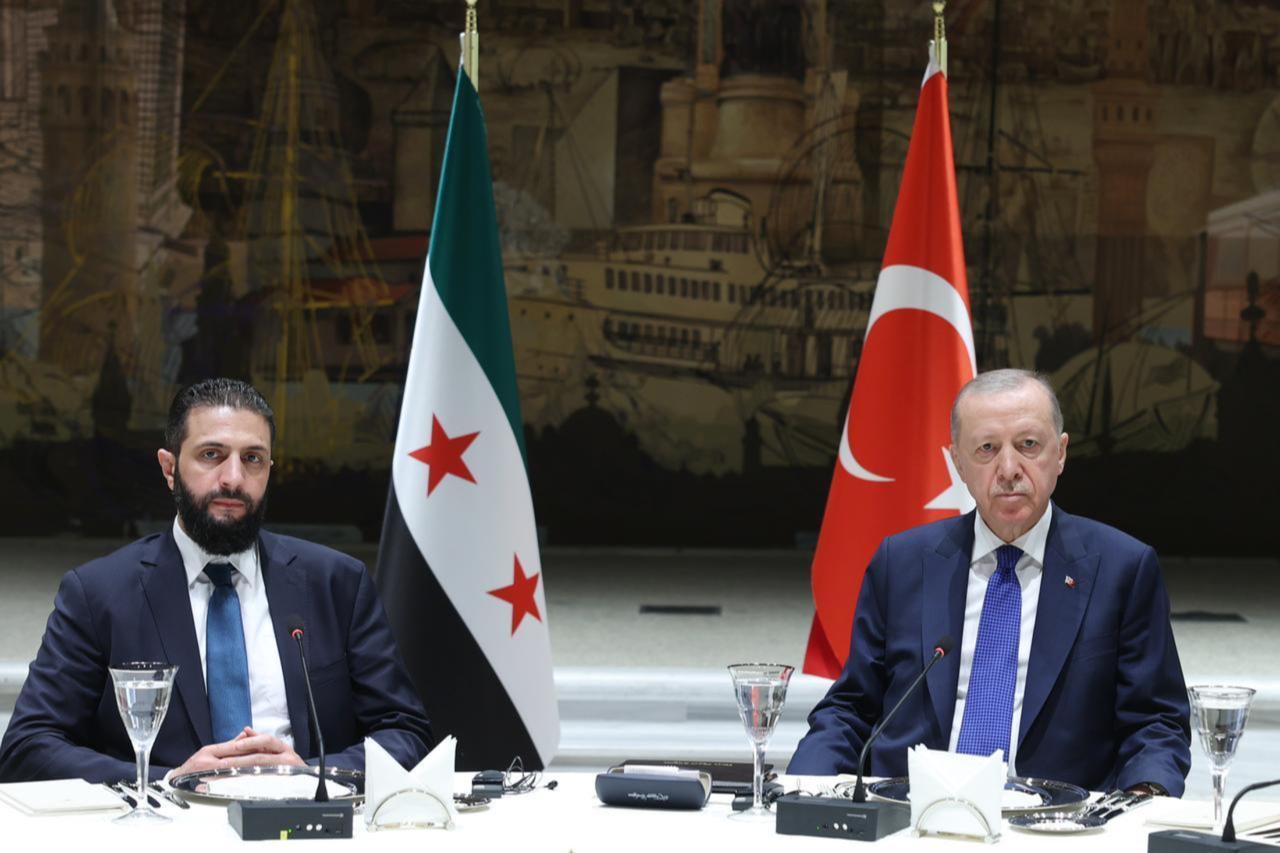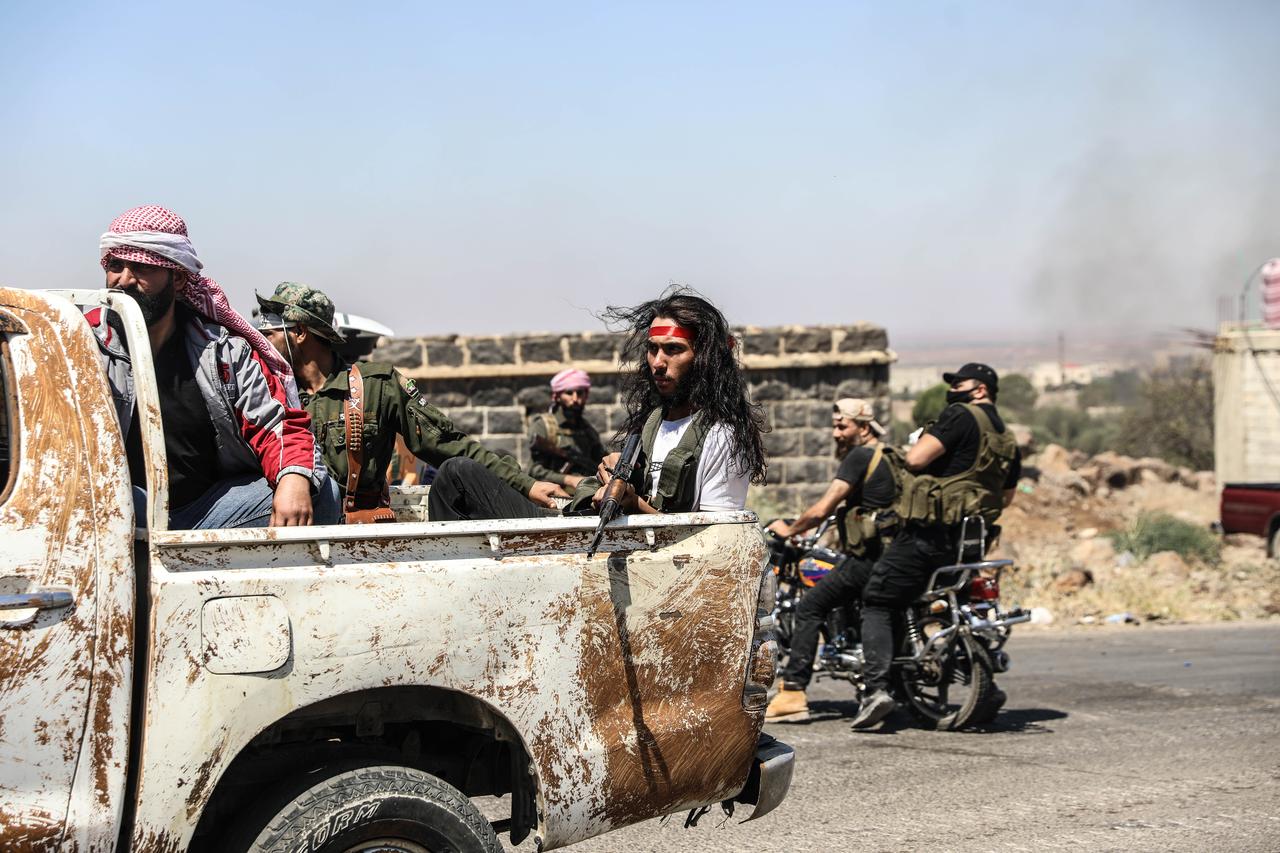
Syria’s government has formally requested military assistance from Türkiye to help rebuild its depleted security infrastructure. Ankara confirmed ongoing discussions aimed at providing training, advisory, and technical support, as Damascus seeks to strengthen its capacity in the face of lingering security threats and institutional collapse.
The Turkish Defense Ministry stated that cooperation would focus on boosting Syria’s defense capabilities through non-combat mechanisms, including the transfer of military know-how.
Former Turkish diplomat and Director of the Istanbul-based think tank EDAM, Sinan Ulgen, notes that such military missions can contribute meaningfully to national security if a clear political objective and a realistic timeline are established.
“The viability of that political objective is critical,” he said. “And so is the extent to which the Turkish Armed Forces can support it. Otherwise, in cases where the political goal is ambiguous, unrealistic, or unlikely to succeed, the risks of such missions may outweigh their benefits.”

The planned support is expected to unfold in phases. Initially, Türkiye will focus on non-combat assistance, including institutional training, defense consultancy, and the transfer of military know-how. This approach avoids immediate escalation while laying the groundwork for deeper cooperation. While Ankara is not committing to an active combat operation at this stage, the evolving situation could lead to broader involvement if regional threats intensify.
This cooperation is not a reactionary or a sudden shift but rather appears to be the result of prolonged discussions involving multiple actors, including Arab states and possibly Western interlocutors. The timing indicates a calculated move following days after the airstrike campaign of Israel and following Druze rebellion.
Still, analysts note the possibility of a broader security role if conditions evolve. Any transition toward a more operational footprint would depend on how the threat landscape develops and whether bilateral cooperation deepens further. For now, Ankara appears to be positioning itself as a stabilizing partner, leveraging its defense capabilities without immediately expanding its military footprint.
For Turkish policymakers, stabilizing Syria is essential not only for border security but also for broader regional equilibrium. It is increasingly seen in Ankara as a strategic necessity shaped by a convergence of national security threats, regional dynamics, and humanitarian concerns.
Several factors drive Ankara’s current calculus. First, Turkish officials argue that the remnants of the Daesh must be dealt with decisively, and that the detention and management of former fighters can no longer be left in the hands of non-state actors. The collapse of institutional control in much of northeastern Syria has led to the proliferation of makeshift detention camps run by militias, a scenario that Türkiye views as unsustainable and potentially catastrophic.
Second, Ankara continues to warn against the long-term risks posed by the YPG, which it considers the Syrian extension of the outlawed PKK. While the group currently holds sway over significant territory in northeastern Syria, Turkish officials stress that a non-state actor wielding a monopoly on violence, especially with foreign backing, is incompatible with regional sovereignty and stability. In Ankara’s view, a scenario in which such entities evolve into permanent fixtures of the Syrian landscape could create a long-term security dilemma for both Syria and Türkiye.
Third, Türkiye’s engagement is also framed around the migration crisis. With nearly 4 million Syrian refugees already inside its borders, Turkish officials argue that long-term stabilization in Syria is indispensable to managing future migration flows. A Syria plagued by persistent conflict and institutional collapse would only exacerbate refugee movements and strain Türkiye’s already stretched social and political capacity.
Against this backdrop, Türkiye views itself as uniquely positioned to combine military leverage with diplomatic engagement, the kind of “smart power” regional stewardship that other actors either lack the capacity or legitimacy to pursue.

Türkiye’s growing role in Syria is not being developed in isolation. A tripartite coordination mechanism involving Iraq, Jordan and Türkiye has taken shape, particularly around shared concerns about cross-border extremism and refugee flows. While still nascent, the platform reflects an effort to build regional ownership over Syria’s security trajectory.
The model could eventually serve as a counterpoint to the YPG-centric frameworks backed by Washington, offering an alternative model based on state-to-state cooperation.
Ankara’s engagement is not without legal precedent. The 1998 Adana Agreement between Türkiye and Syria remains in effect and allows Türkiye to take coordinated action against threats emanating from Syrian territory if Damascus is unable to address them independently.
The agreement provides Ankara with a basis for its current support framework, allowing Turkish assistance to proceed under an established bilateral mechanism without the need for new accords or international resolutions.

Reconstruction of Syria’s formal military structure remains in its early stages. Recent graduation ceremonies in Aleppo marked the first steps toward building a professional force, but the numbers remain limited and the capacity is insufficient.
Turkish officials are expected to play a role in advising and training these forces, with some analysts comparing Ankara’s potential role to Russia’s early involvement in Syria before its 2015 military intervention, although Türkiye’s strategy in Syria differs from that of Russia and Iran in many respects.
If the instability inflicted by Israel persists both within Syria and across its borders, Türkiye’s current technical support could eventually serve as a foundation for broader multilateral assistance.
Although both Türkiye and Syria have attempted to strike a balance in their relationship in recent months, neighboring actors invested in a weaker Syria have made deeper cooperation a necessity.
Moreover, Turkish officials have publicly stated that Türkiye should not be expected to shoulder the counterterrorism burden alone. If regional actors are equally threatened, they argue, then cooperation, not unilateral responsibility, should guide future frameworks.
On the day the Assad regime fell, Israel destroyed all remaining Syrian military ammunition needed to maintain a stable state authority, and by fueling internal unrest, it made Syria’s invitation to allied powers inevitable.
Now, despite periodic speculation, analysts largely discount the prospect of a direct confrontation between Türkiye and Israel in Syria. Both countries maintain close security ties with the United States and have indirect lines of communication through NATO and regional actors. While friction is possible, particularly around airspace and intelligence-based issues, a direct clash remains unlikely under current conditions.
Still, as Syria’s internal conflict becomes increasingly fragmented along multiple fault lines, including in Sweida, Lattakia, and Qamishli, the risk of miscalculation or proxy entanglement cannot be entirely ruled out.